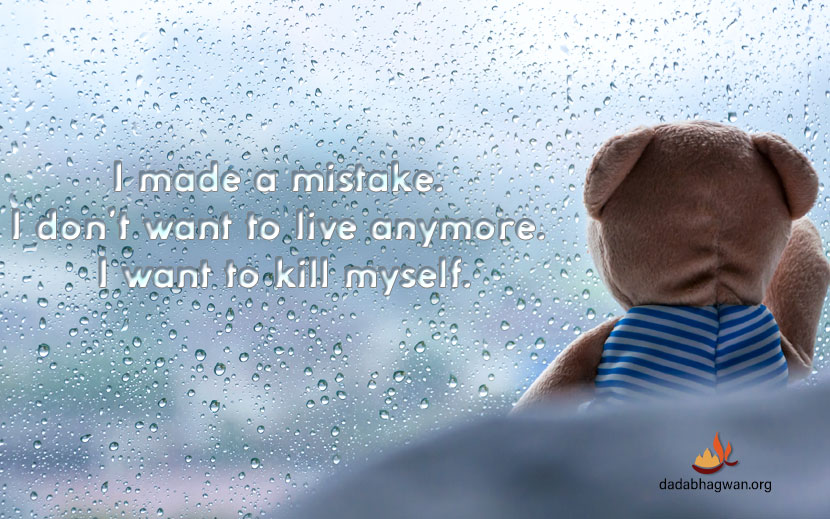I made a mistake. I don’t want to live anymore. I want to kill myself.

We all hate making mistakes, but we make them sometimes. While some of these mistakes are minor, some may be life-changing ones. For those mistakes in particular, the sense of dread, knowing you have committed a huge mistake, can be deeply upsetting and you may feel very ashamed, guilty and annoyed with yourself, to the point that you feel, ‘I don’t want to live anymore! I want to kill myself!’
If this is how you are feeling, the best advice for you is to focus on how you can stop having such thoughts. No matter how big the mistake is, it doesn’t warrant you taking your own life. Try to gain a sense of perspective and see the big picture. Rather than being immersed in these emotions, the best thing you can do after you have committed a mistake is to do something about it:
- Accept that you have made a mistake and see if you can rectify it. If you are unable to, acknowledge it and try as much as possible to reconcile any discord or disharmony.
- Learn from your mistake. Instead of being stuck on what you did wrong, learn from it. If you cannot, then at least share your experience with someone else, so he/she can avoid making the same mistake.
- Stop looking back and thinking ‘I made a mistake’, remain in the present. Looking back will make you miserable. Thinking about what may happen in the future will make you apprehensive, but remaining in the present and looking for solutions will give you hope. Try not to dwell in ‘what and if’. Instead, look towards mending and repairing.
- If possible, let the person whom you have hurt know how bad you feel and explain to them that it was truly not your intent. If you can’t apologize in person, then ask for forgiveness from the God residing within them internally.
- By owning up to your mistake, you will find people will be more likely to forgive you. They might not be willing to forgive you right away. It will take time for them to digest what you have said or done to them and come to terms with it. So be patient and manage your expectations accordingly.
- Have the understanding that mistakes can happen, but the answer lies in what you do about it.
- Do not complicate matters, keep things simple.
- Remain calm and think clearly.
- Firmly resolve to never make such a mistake again.
subscribe your email for our latest news and events





